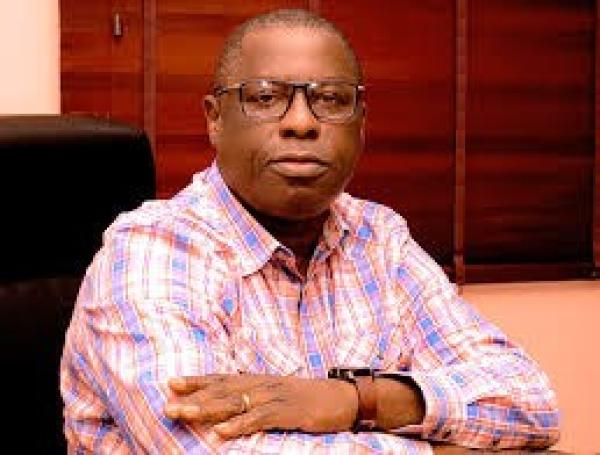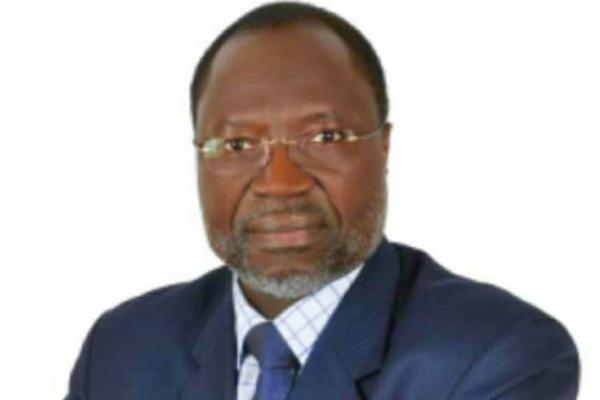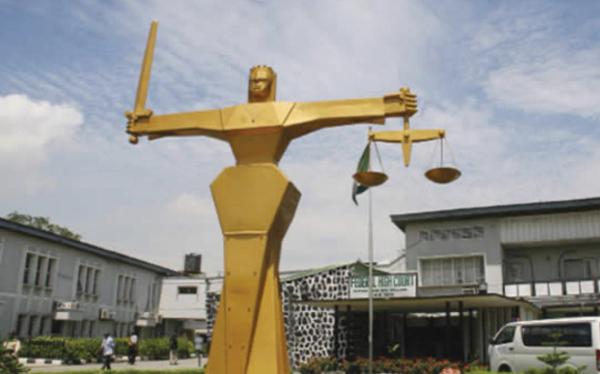
The two women are on a bus ride from Apapa to Oshodi in Lagos. From their appearance, they look like petty traders. In excitement, one informs her co-passenger that Anambra State has recently joined Niger Delta states with the discovery of oil in the state. Her deep Igbo accent gives away her ethnicity, and from her excitement, it is easy to suspect that she or her husband is from Anambra.
Her fellow passenger, an acquaintance, going by the cordiality of their conversation, is happy for her, and she highlights some of the benefits accruable to indigenes of an oil producing state: job opportunities in the oil companies operating in the state, company scholarship for students, contract jobs in the companies among others, which she expects her friend and her family to start enjoying soon.
Other passengers in the bus who might have paid attention to their conversation certainly would have understood it to mean that crude oil has been discovered in Anambra, therefore the state has become a Niger Delta state.
If the two women are considered not to be lettered enough to know that an oil producing state does not necessarily mean a Niger Delta state, then one could only marvel at the planners who drew up the law establishing the Niger Delta Development Commission (NDDC) and who named the commission as such, as if only Niger Delta states produce oil.
COMMON PERCEPTION
The common perception among Nigerians is that crude oil is found in the Niger Delta Region and that every state in the region is an oil producing state, which is in order. But it is evident, especially from the example of the bus conversation, that this perception has been wrongly taken further to mean that any state where oil is found automatically becomes a Niger Delta state.
The perception is common among commoners as well as the elite, and it is believed to have been generated by the naming of the commission which was established to tackle the developmental needs of oil producing states with oil derivation funds, as the Niger Delta Development Commission (NDDC), and the ministry later established to offer more palliatives to the region named the ministry of Niger Delta affairs. What could have informed the naming of these institutions as such?
ORIGIN OF WRONG NOMENCLATURE
The people of the Niger Delta believed and still believe that they have not benefited enough from their God-given resources since Nigeria started generating revenue from crude oil in 1958, because of their minority status. This has been one of the major reasons for their agitations over the years. In response, Sir Henry Willinks Commission, in 1958, recommended that the Niger Delta Region deserved special development attention by the Federal Government, especially because of its difficult terrain.
The Federal Government then established the Niger Delta Development Board (NDDB) in 1960. This could be seen to be the origin of the inappropriate nomenclature for oil producing states, because as at 1960, when the board was established, crude oil had been discovered in present-day Ondo State, outside the Niger Delta Region.
It could be assumed that the government named the committee as such to satisfy the yearnings of the Niger Delta people by making them feel the committee was strictly for them. But the board (NDDB) died a natural death when the country came under military rule in 1966.
With the return of civilian rule in 1979, the agitations for resource control resumed in earnest. This led the government of Alhaji Shehu Shagari to set aside 1.5% of oil earnings for oil producing states, and the body the government established to oversee the execution of the allocation was named Niger Delta Development Committee (NDDC), clearly following the NDDB precedence in its choice of nomenclature.
But the government of military President Ibrahim Babangida not only doubled the allocation to 3 % but also changed the name of the body to the more appropriate Oil Mineral Producing Areas Development Commission (OMPADEC) in 1992, obviously to reflect the fact that not only Niger Delta states produce oil.
On his assumption of office, Gen. Sani Abacha scrapped OMPADEC. He instead established the Petroleum Trust Fund (PTF), whose development mandate covered the whole country. Nevertheless, his 1994 National Constitutional Conference (NCC) agreed on at least 13% derivation. He did not live to implement it.
Chief Olusegun Obasanjo’ government scrapped PTF and established a special body to undertake a rapid development of the oil producing areas. But instead of re-instating the old name of OMPADEC, or any other nomenclature, to reflect the fact that not every oil producing state is a Niger Delta state, the government opted for the Niger Delta Development Commission (NDDC). When the Umaru Yar’Adua government wanted to establish a ministry to offer more palliatives to oil producing states, it followed Obasanjo’s precedence and named it ministry of Niger Delta affairs!
NOT EVERY OIL PRODUCING STATE IS NIGER DELTA STATE
Who says every oil producing state is a Niger Delta? The answer could be found in a lecture presented by Chief James Ibori, former governor of Delta State, at the 2009 Business Hallmark Inaugural Independence Anniversary, in October 2009, titled ‘Economic Development, Niger Delta and the Future of Nigeria’. He wrote in the fourth paragraph, under the sub-heading: WHY THE NIGER DELTA MATTERS:
‘The Niger Delta region is made up of the nine oil-producing states of Abia, Akwa Ibom, Bayelsa, Cross River, Delta, Edo, Imo, Ondo and Rivers as defined in the 2000 Law that set up the Niger Delta Development Commission (NDDC). Prior to this law, the geographical definition of the area comprised the six states in the South-South geo-political zone of Nigeria. These states are Akwa Ibom, Bayelsa, Cross River, Delta, Edo, and Rivers.’
Ibori’s attempt to prove that not all the oil producing states are originally from the geo-political Niger Delta could be accepted, and he attempted to also provide two definitions for the Niger Delta: NDDC law, and geo-political definition, though he broadly called it ‘geographical definition’. In the NDDC law, the Niger Delta is made up of the states of Abia, Akwa Ibom, Bayelsa, Cross River, Delta, Edo, Imo, Ondo and Rivers for the simple reason that they all produce oil and are a cluster of states with common boundaries; while geo-politically, the Niger Delta is comprised of Akwa Ibom, Bayelsa, Cross River, Delta, Edo and Rivers States.
Going geographic or cartographic, and not geo-political, the states that actually constitute the Niger Delta Region or area are Bayelsa, Delta and Rivers States. This is because going by the geographical word ‘delta’, the routes of the waterways which the River Niger created to empty its contents into the South Atlantic Ocean, forming a delta in the area, from which the word Niger Delta was derived, only went through the mentioned coastal states.
It is common knowledge that geography hardly stands alone. Sometimes, it goes with, among others, the economy, humanity, physicality, sociology and politics of the area under consideration. In geographical calculations, these are given prominent consideration, based on which terms like geo-politics and geo-ethnicity were derived.
It is on that basis that states like Akwa Ibom, Cross River and Edo, which are not geographically in the Niger Delta area, are geo-politically regarded as Niger Delta states. This may not be due to only the proximity of these states to the three original Niger Delta states, but also due to their peculiarity of oil production and their Southern minority status, both based on economics and socio-politics.
In naturally determining the four cardinal points, if an X is drawn across the map of Nigeria, with both lines meeting at the central point, somewhere around the Abuja, Kaduna and Nassarawa boundary axis, four equal parts will be produced: the Northern, the Southern, the Eastern and the Western sections.
But looking at the four parts the partitioning has produced on the map, the result definitely does not absolutely correspond with our present usage of North, South, East and West. If geography is to be strictly adhered to, the states in Northern Nigeria, for example, are Kano, Katsina and parts of Bauchi, Jigawa, Kaduna, Sokoto, Yobe and Zamfara, and not the nineteen Northern states from the old Northern Region as presently regarded.
Even drawing an horizontal line across the map of Nigeria at the earlier central point, it is obvious that the partitioning does not correspond with our present usage, where Abuja FCT, Benue, Kogi and Nassarawa states and parts of Adamawa, Kaduna, Kwara, Niger, Plateau and Taraba states are actually in the South.
ut in taking politics, economics and especially sociology into consideration in their calculations, geographers had to consider the history of the peoples, the economy and the physicality of the areas and the similarities of their languages and cultures in determining their geographical groupings. Thus when the Igboman says he is from the East or that he is travelling to the East from Lagos, he is not actually travelling to the geographical East, for the geographical East consists of Adamawa, Borno, Gombe, Taraba and parts of Bauchi, Borno, Nassarawa Plateau and Yobe States. But geo-politically, the Igboman is actually travelling east!
That was the reason why former Vice President, Dr. Alex Ekwueme’s postulate of South-East, South-South, South-West, North-West, North-Central and North-East Regions, which gave Nigeria the present six geo-political regions, has been generally accepted because it is the boldest and best attempt so far at partitioning Nigeria to meet its geographical, sociological and political reality!
The NDDC law later expanded the geo-political Niger Delta (or the South-South) Region to include Ondo State in the South-West geo-political Region of the Southern majority group of Yoruba, and Abia and Imo States in the South-East Region of the Igbo ethic group, the second Southern majority group, for the simple reason that the three states also produce oil.
But who says oil is synonymous with river or creek or delta? Ibori answered much of this question in the sixth paragraph of his lecture, under the sub-heading, ‘PECULIARITIES OF THE NIGER DELTA’, when he provided that the Niger Delta is the richest delta in the world in oil and gas reserves:
‘The Niger Delta is one of the 20 major deltas in the world; some of the other deltas are those of the Nile in Egypt, the Mississippi in the United States, the Mekong in Vietnam, the Ganges in India, the Yellow-Yangtse River in China, and the Danube in Germany-Romania. BUT THE NIGER DELTA IS PERHAPS THE RICHEST IN THE WORLD IN TERMS OF OIL AND GAS RESERVES.’
If that be the case, Nigeria’s bulk of oil is in the Niger Delta and Nigeria is the eighth oil producing country in the world, the eight oil exporting country and the tenth country in oil reserves, but the same Niger Delta is the delta with the largest reserves of oil and gas in the world, meaning the seven biggest oil producing countries do not have their reserves in deltas. It could therefore be seen that more oil could be discovered in other regions of Nigeria and not only in a delta.
Explorations are still expanding further into the South-West and the South-East. And speculations about oil and gas reserves in the North became reality in 2008 when the nineteen Northern state-established New Nigeria Development Company (NNDC) went into partnership with both OAO Gazprom of Russian and Anzion Energy of Australia on the prospect of both companies exploring in the Benue Trough which has been found to have large quantities of gas reserves. There are also explorations in Borno, Niger and Sokoto States.
It is an established fact that the geo-political Niger Delta (not the NDDC Niger Delta) produces the bulk of Nigeria’s oil but it is not the only region that produces oil in Nigeria. So, by naming a commission set up to oversee the development of states in that region (Niger Delta) and states in nearby regions (Ondo in Odua, and Abia and Imo in Ndigbo) and even possibly states in far off regions (Benue, Borno, Niger and Sokoto in Arewa) to reflect only states in the predominantly oil-producing region of the Niger Delta, the problem of nomenclature is bound to arise.
SOLUTION
If oil is discovered in Kafachan in Kaduna State for example, NDDC will go there and execute projects with its signboards boldly mounted on the possible sites: Niger Delta Development Commission (NDDC). Is Kafachan part of the Niger Delta Region? When the more appropriate name of Oil Mineral Producing Area Development Commission (OMPADEC) should have been retained, former President Olusegun Obasanjo’s government, on its assumption, not only abolished the law that set up OMPADEC and promulgated the NDDC law with similar objectives, it inappropriately named it Niger Delta Development Commission (NDDC). Umaru Yar’Adua followed his example and named his palliative agency as ministry of Niger Delta affairs.
Aside Niger Delta producing the bulk of Nigeria’s oil and gas, who says more oil and gas, even in volumes far greater than those from the Niger Delta Region, could not be discovered in other regions? So, when possibly such quantities of oil and gas are discovered in those regions, government would establish a ministry to oversee special developments for the regions. Perhaps then we would have ministry of Odua affairs, or ministry of Ndigbo affairs, or ministry of Arewa affairs!
It is hoped that this issue will be looked into and the appropriate corrections affected in the nomenclature of these two government agencies. When this has been achieved, the wrong perception of all oil producing states being Niger Delta state will be removed from the consciousness of many Nigerian. When this is achieved, then perhaps the two women on the bus ride will have cause to celebrate Anambra becoming oil producing state, and not necessarily becoming a Niger Delta state.






















